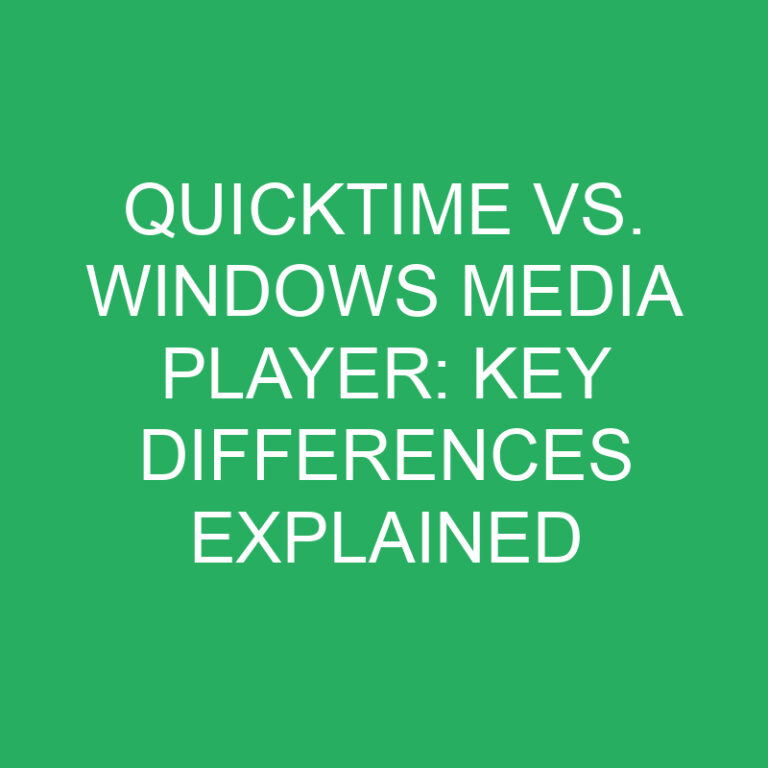
When it comes to compressing files, the debate between zip, rar, tar, and 7z is ongoing. Each format has its strengths and weaknesses, making it essential to choose the right one for your specific needs. As an expert in file compression, I’ve tested and compared these formats extensively to provide you with valuable insights.
Zip files are widely supported and easy to create, but are they always the most efficient option? Rar files offer better compression rates, but are they worth the potential limitations? Tar files are commonly used in Unix-based systems, while 7z files boast high compression ratios. Join me as I delve into the differences between zip, rar, tar, and 7z to help you make informed decisions when it comes to file compression.
Post Contents
- Comparing Zip, Rar, Tar, and 7z File Formats
Key Takeaways
- Zip files are user-friendly and widely supported across different operating systems, making them ideal for everyday file compression tasks.
- Rar files offer higher compression rates compared to Zip files, making them suitable for reducing file sizes without compromising quality, especially for large files.
- Tar files are commonly used in Unix-based systems for archiving purposes and are often paired with compression tools like Gzip for efficient storage.
- 7z files excel in providing high compression ratios, making them a top choice for reducing file sizes significantly without loss of quality, especially for large files or directories.
- Understanding the strengths and limitations of each format – zip, rar, tar, and 7z – is crucial in choosing the most suitable option based on specific needs, such as compression efficiency, encryption options, and compatibility requirements.
Comparing Zip, Rar, Tar, and 7z File Formats
When managing files, choosing the right compression format is essential. Each archive type—Zip, Rar, Tar, and 7z—offers unique advantages and disadvantages. Understanding these differences helps you pick the most suitable format for storage, sharing, or backup purposes.
1. ZIP (.zip)
Overview:
ZIP is one of the oldest and most widely used archive formats, introduced in 1989. It supports lossless compression and can include multiple files and folders in a single archive.
Features:
-
Compression: Moderate, uses DEFLATE by default.
-
Encryption: Supports password protection with AES encryption in newer versions.
-
Compatibility: Native support in Windows, macOS, and Linux. Most operating systems can open ZIP files without additional software.
-
File Splitting: Limited; usually requires third-party software.
Pros:
-
Universally supported.
-
Simple to use.
-
Fast compression and decompression.
Cons:
-
Lower compression ratio compared to modern formats like 7z or RAR.
-
Limited advanced features compared to RAR and 7z.
Best Use Case: Everyday file sharing, small to medium-sized backups, and cross-platform use.
2. RAR (.rar)
Overview:
RAR is a proprietary archive format developed by Eugene Roshal. RAR files usually require WinRAR or compatible software to compress or decompress.
Features:
-
Compression: High; generally better than ZIP.
-
Encryption: Strong AES-256 encryption supported.
-
Compatibility: Requires WinRAR or compatible software on Windows, Linux, or macOS.
-
File Splitting: Supports multi-volume archives.
Pros:
-
Better compression ratios than ZIP.
-
Can split archives into multiple parts for easier storage or sharing.
-
Strong encryption for secure files.
Cons:
-
Proprietary format; not natively supported by operating systems.
-
Requires additional software to create or extract RAR files.
Best Use Case: Large file backups, secure storage, and file sharing where compression efficiency matters.
3. TAR (.tar)
Overview:
TAR (Tape Archive) is a Unix/Linux standard for bundling multiple files into a single archive. It does not compress by itself; compression is added using utilities like gzip (.tar.gz) or bzip2 (.tar.bz2).
Features:
-
Compression: Dependent on secondary compression (gzip or bzip2).
-
Encryption: Not natively supported; must be encrypted separately.
-
Compatibility: Native on Unix/Linux; Windows users require software like 7-Zip or WinRAR.
-
File Splitting: Not built-in; external tools required.
Pros:
-
Excellent for preserving file permissions and metadata.
-
Ideal for archiving large directory structures.
-
Works well with Linux-based backup and deployment workflows.
Cons:
-
No native compression; must pair with gzip or bzip2.
-
Windows support requires third-party software.
Best Use Case: Linux server backups, software distribution, and archiving projects while preserving metadata.
4. 7Z (.7z)
Overview:
7Z is a modern, open-source archive format introduced by 7-Zip. It is known for high compression ratios and advanced features.
Features:
-
Compression: Excellent; supports LZMA and LZMA2 algorithms.
-
Encryption: Strong AES-256 encryption supported.
-
Compatibility: Requires 7-Zip, PeaZip, or WinRAR for full functionality.
-
File Splitting: Supports multi-volume archives.
Pros:
-
Superior compression ratio compared to ZIP and RAR.
-
Open-source and free to use.
-
Supports very large files and archives.
-
Advanced compression options for specific file types.
Cons:
-
Limited native support on macOS and Windows.
-
Slower compression speed compared to ZIP.
Best Use Case: Archiving large files, maximizing compression efficiency, and secure storage with encryption.
Comparison Table: Zip vs Rar vs Tar vs 7z
| Feature | ZIP | RAR | TAR | 7Z |
|---|---|---|---|---|
| Compression Ratio | Moderate | High | Variable (gzip/bzip2) | Very High |
| Encryption | AES | AES-256 | None | AES-256 |
| Platform Support | Native Windows/macOS/Linux | Requires software | Native Unix/Linux, software for Windows | Requires software |
| File Splitting | Limited | Yes | External tool | Yes |
| Speed | Fast | Moderate | Fast (tar only), slow with gzip/bzip2 | Slower |
| Best For | Everyday file sharing | Large backups, secure files | Linux backups, preserving permissions | Maximum compression, large files |
Key Takeaways
-
ZIP: Best for cross-platform compatibility and quick compression of smaller files.
-
RAR: Ideal for secure, high-compression archives, especially for Windows users.
-
TAR: Suited for Linux and Unix environments, especially when preserving file structure and metadata.
-
7Z: Best for maximum compression efficiency and secure archiving of large files
Zip Files: Pros and Cons
When it comes to zip files, they are popular due to their simplicity and widespread support across various platforms. Zip format is easy to create and extract without the need for specialized software, making it incredibly user-friendly. As someone who has worked with zip files extensively, I can attest to their convenience in everyday file compression tasks. However, it’s essential to consider both the advantages and limitations of zip files before choosing them for your needs.
Pros of Zip Files:
- Easy to create and extract
- Supported across different operating systems
- Compatible with a wide range of software
- Good balance between compression speed and ratio
- Limited compression ratio compared to other formats like rar and 7z
- Struggles with very large files
- May not be the most efficient choice for highly sensitive or confidential data
In my experience, zip files are ideal for everyday usage where compression and compatibility are key factors. They are perfect for sharing multiple files or reducing the size of documents without compromising too much on quality. However, for large files or data requiring stronger encryption, exploring other formats like rar and 7z might be more appropriate.
Rar Files: Compression Rates and Limitations
When it comes to compression rates, Rar files are known for their ability to achieve higher compression ratios compared to Zip files. This means that Rar compression can make files smaller without losing as much quality. For users dealing with large files or wanting to save storage space, Rar compression can be a valuable asset.
However, it’s essential to be aware of the limitations that come with Rar files. While they offer superior compression, Rar files may not be as widely supported as Zip files. This can pose difficulties when sharing Rar files with others who do not have the necessary software to extract them. Additionally, Rar files can take longer to compress and extract due to their higher compression ratios.
In terms of encryption and security, Rar files also provide stronger encryption options than Zip files. This makes them a suitable choice for users concerned about the confidentiality of their data. Whether it’s personal documents or sensitive business information, Rar encryption can add an extra layer of protection.
| Compression Rates | Widely Supported | Encryption Options |
|---|---|---|
| Higher with Rar | Not as much as Zip | Stronger with Rar |
Tar Files: Unix-based System Usage
When it comes to Unix-based systems, Tar files are widely used for archiving purposes. Tar, short for Tape Archive, does not offer compression on its own but is often paired with other tools like Gzip or Bzip2 to compress the archived files.
Here are some key points about Tar files in Unix-based systems:
- Tar files are commonly used for bundling multiple files into a single archive.
- They preserve file system information such as permissions and directory structures.
- Tar archives are often used for backups and software distribution in Unix environments.
In Unix-based systems, utilizing Tar alongside tools like Gzip for compression results in the creation of .tar.gz files, which are popular for their efficient compression rates. This format is handy for storing files while minimizing space usage.
For users operating in Unix environments or wanting to ensure compatibility across various Unix-based systems, Tar files remain a reliable choice for archiving and compressing files efficiently.
By understanding the role of Tar files within Unix-based systems, individuals can leverage this archiving format to streamline file management and distribution tasks effectively.
7z Files: High Compression Ratios
When it comes to achieving high compression ratios, 7z files truly stand out among the options like Zip, Rar, and Tar.
Using the LZMA compression algorithm, 7z files can compress data significantly better than other formats. This results in smaller file sizes without compromising on the quality of the compressed content.
7z compression is especially beneficial for large files or directories where saving space is crucial. It’s highly effective in reducing the size of files, making it a top choice for archiving and file distribution purposes.
One of the standout features of 7z is its ability to create self-extracting archives. This means that recipients can easily extract the contents of a 7z file without needing any special software, enhancing its user-friendliness.
In side-by-side comparisons, 7z consistently proves its prowess in compression efficiency, making it a go-to choice for individuals and organizations looking to efficiently manage and store their files.
Being well-versed in the capabilities of 7z files is essential for anyone seeking optimal compression without sacrificing file integrity or quality.
Conclusion
In the realm of file compression, 7z emerges as the frontrunner, boasting unparalleled efficiency in reducing file sizes without sacrificing quality. Leveraging the powerful LZMA compression algorithm, 7z files are ideal for archiving and distributing content, particularly for large files necessitating space optimization. Noteworthy for its self-extracting archive feature, 7z enhances user experience by simplifying file access. When it comes to compression effectiveness, 7z consistently outperforms Zip, Rar, and Tar, making it the preferred choice for those prioritizing storage efficiency and file integrity. Familiarity with 7z’s capabilities is essential for maximizing compression benefits while ensuring data remains intact and accessible.
Frequently Asked Questions
What is the advantage of using 7z files over Zip, Rar, and Tar formats?
7z files excel in achieving high compression ratios using the LZMA algorithm, reducing file sizes significantly while maintaining quality, making them perfect for archiving and distributing files, especially for large files where saving space is essential.
Why are 7z files preferred for effective file management and storage?
7z files consistently demonstrate superior compression efficiency in comparisons with other formats, making them the preferred choice for users looking to optimize file management and storage by balancing compression and quality.
What is a notable feature of 7z files that enhances user-friendliness?
7z files have the capability to create self-extracting archives, allowing users to easily access the contents without needing additional software or tools for extraction.






